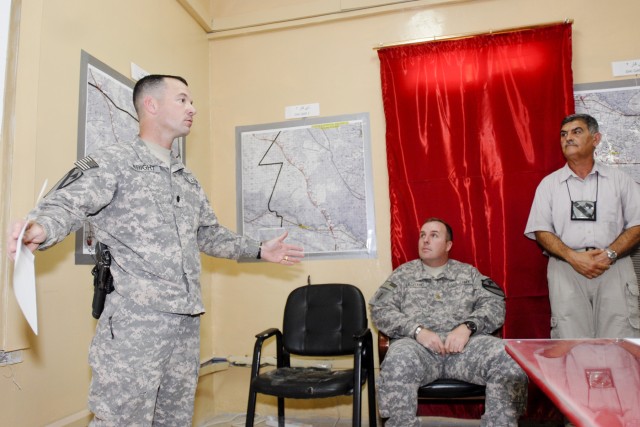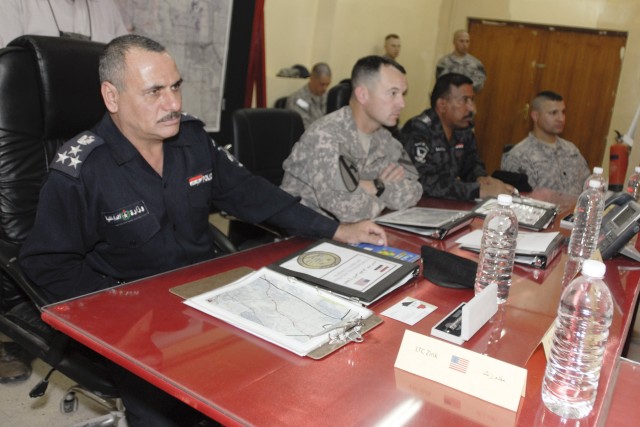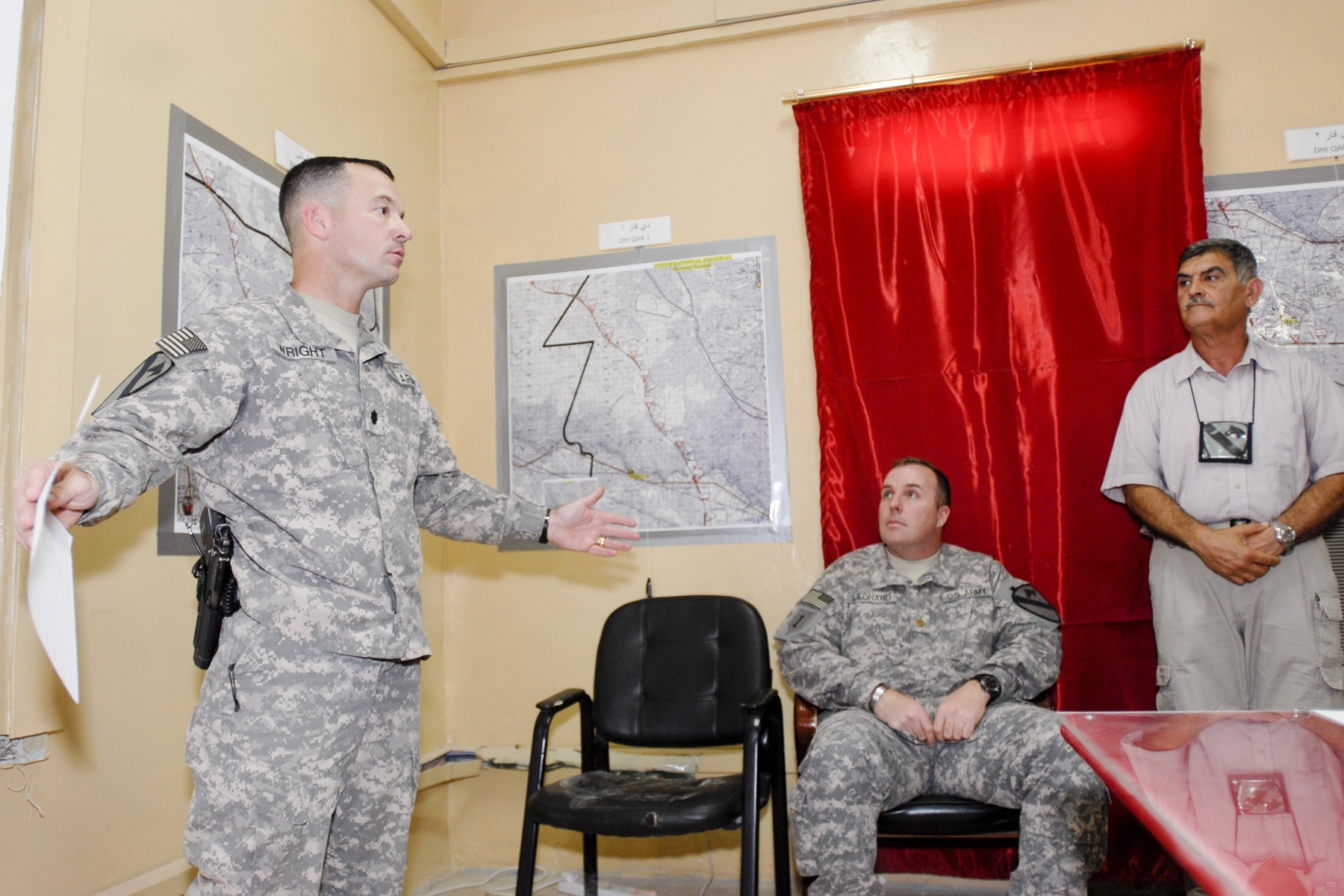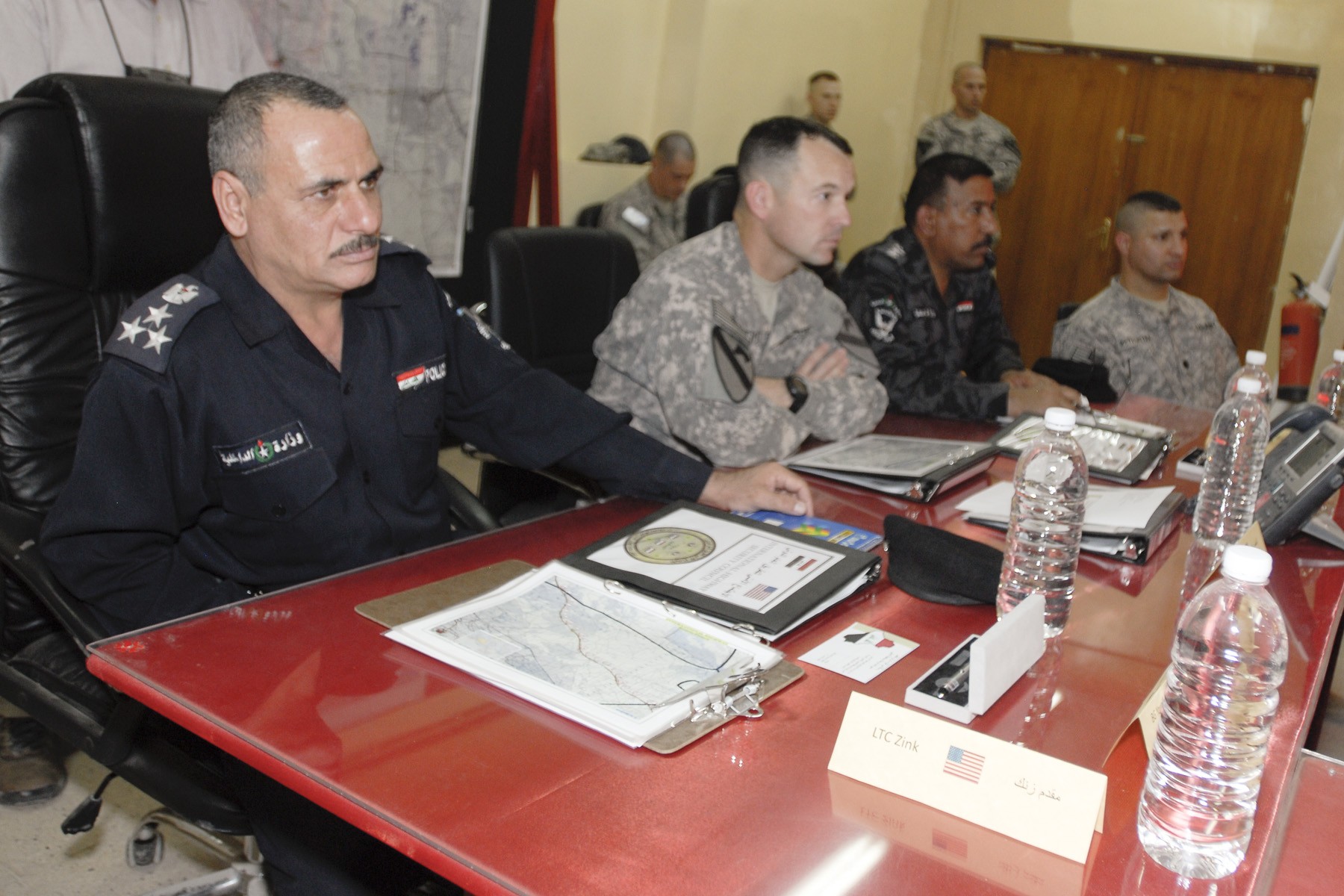CONTINGENCY OPERATING BASE ADDER, Iraq - The 2nd Battalion, 82nd Field Artillery Regiment, 3rd Advise and Assist Brigade hosted a conference with local military and police officials to discuss ways to secure southern Iraq's main roadways April 26 at Contingency Operating Base Adder.
The battalion impressed upon the Iraqi Security Forces the need for emplacing sustainable systems that they can maintain after U.S. troops drawdown. The highlights of the meeting included new map standards, implementing the approval of roadside workers through local police stations and assisting them in maintaining the momentum developed in recent years.
The conference has been five weeks in the making, said the battalion's commander, Lt. Col. Robert Wright. Leaders from the platoon level conducted key leader engagements all over Dhi Qar and Muthanna provinces to ensure that local officials were aware and could provide feedback on the topics covered at the conference.
"This is only the beginning of a series of councils and we wanted everyone to be prepared for the meeting," he said. "We got a lot of positive feedback because of that."
The local leaders said they liked the idea of standardized map legends. The use of physical reference points instead of letters and numbers on maps will help them respond faster to emergencies in unfamiliar areas.
"The average Iraq Army Soldier doesn't have a map in his vehicle," Wright said. "Using common reference points will make their responses quicker."
Also discussed was the importance of screening contracted workers in the area. The Iraqi leadership expressed concerns of potential criminals using roadside jobs as gateways to emplace bombs, and decided that background checks would eliminate those concerns.
Many of the tactics discussed will secure routes during the responsible drawdown of U.S. troops later this year and will keep local roads safe for years to come.
"The most important thing we took from this meeting is the coordination of work for future success," said a local police official.




Social Sharing